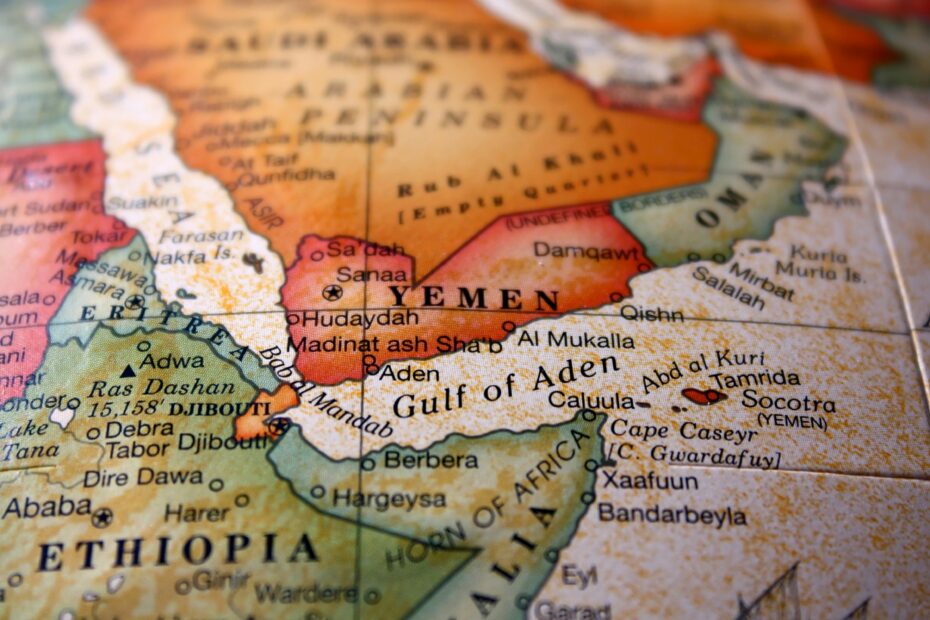Located in the Horn of Africa, Djibouti, a small but culturally rich country, captivates travelers with its diverse landscapes, intriguing history, and harmonious blend of cultures. Join me as we embark on a journey to explore the geography, history, and multifaceted culture that make Djibouti a unique gem in East Africa.
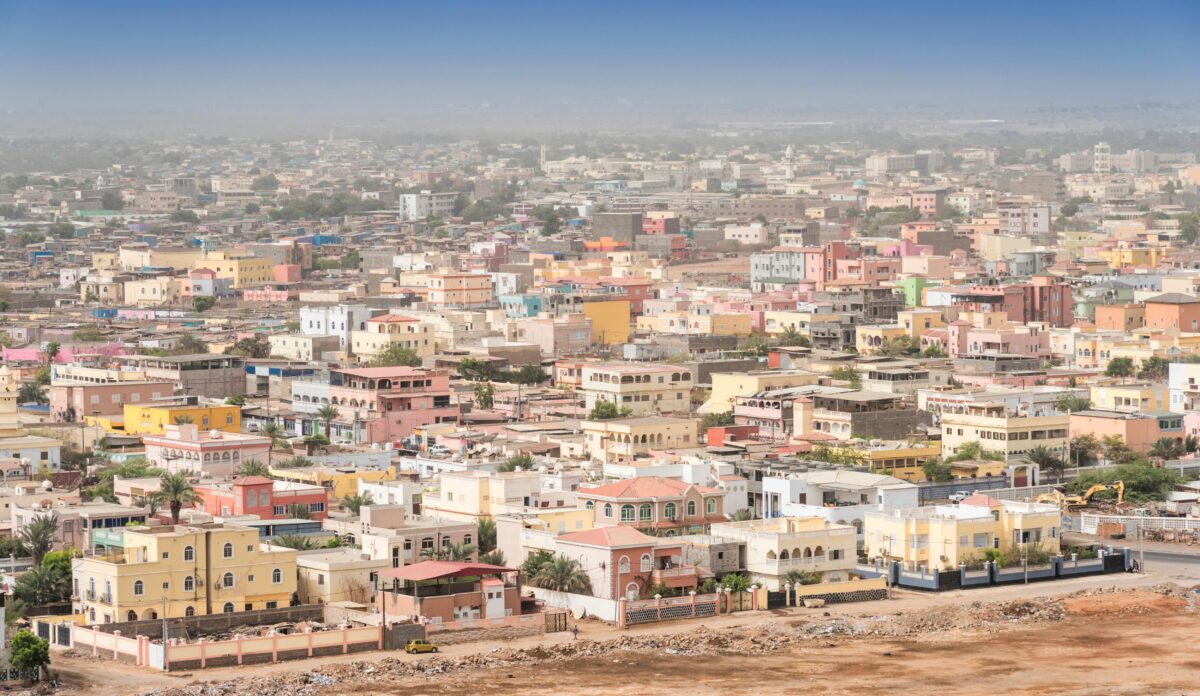
Geography and Climate
Djibouti is predominantly a desert country, taking up approximately 23,200 square kilometers in the northeastern corner of Africa. It’s characterized by its diverse topographical features, from low coastal plains to high plateaus, with the Grand Bara desert stretching across its heart. The country shares its borders with Eritrea, Ethiopia, and Somalia and enjoys a strategic location near the world’s busiest shipping lanes and the gateway to the Suez Canal.
Furthermore, this compact yet diverse nation is predominantly defined by its rugged mountain ranges, vast desert vistas, and abundant salt lakes. The coastal region offers stunning white-sand beaches that seamlessly meet the turquoise waters of the Red Sea. Read Also: The Top 8 Smallest African Countries [With Pictures]
The climate in Djibouti can only be described as hot and arid. The country experiences minimal rainfall, with the coastal areas slightly cooler due to the sea breeze. Djibouti’s average temperature ranges between 25 to 40 degrees Celsius, with hotter periods often tipping the scale in summer.
Despite the challenging climate, the country boasts an array of natural beauty, including dormant volcanoes and limestone chimneys in Lake Abbe, offering unique and picturesque landscapes that are an absolute treat for the adventurous explorer. The country also boasts the lowest point in Africa, Lake Assal, a salt lake that stands as a testament to Djibouti’s unique topographical features.
History
The history of Djibouti is rich and storied, dating back to prehistoric times, with archaeological findings suggesting human habitation as early as the Paleolithic era. The region, located at the crossroads of major trade routes, saw the rise and fall of numerous civilizations, including the Afar, the Issa Somali, and the Danakil tribes, among others.
In the Middle Ages, it was a significant hub for trade and commerce due to its strategic positioning between the Arabian Peninsula and the African continent. The area came under the influence of the Ottoman Empire in the 16th century. Still, it wasn’t until the 19th century that it fell under French rule, which led to the formation of the French territory of the Afars and the Issas.
Djibouti gained its independence from France on June 27, 1977, marking a significant turning point in its history. Hassan Gouled Aptidon was elected as the country’s first President, and his party, the People’s Rally for Progress, ruled for more than two decades, fostering an era of stability.
Today, Djibouti plays a crucial role in global trade and politics due to its strategic location along the Bab el-Mandeb Strait, a gateway to the Suez Canal, one of the world’s busiest shipping lanes. Its unique history and strategic importance have shaped Djibouti into the fascinating and diverse nation it is today.
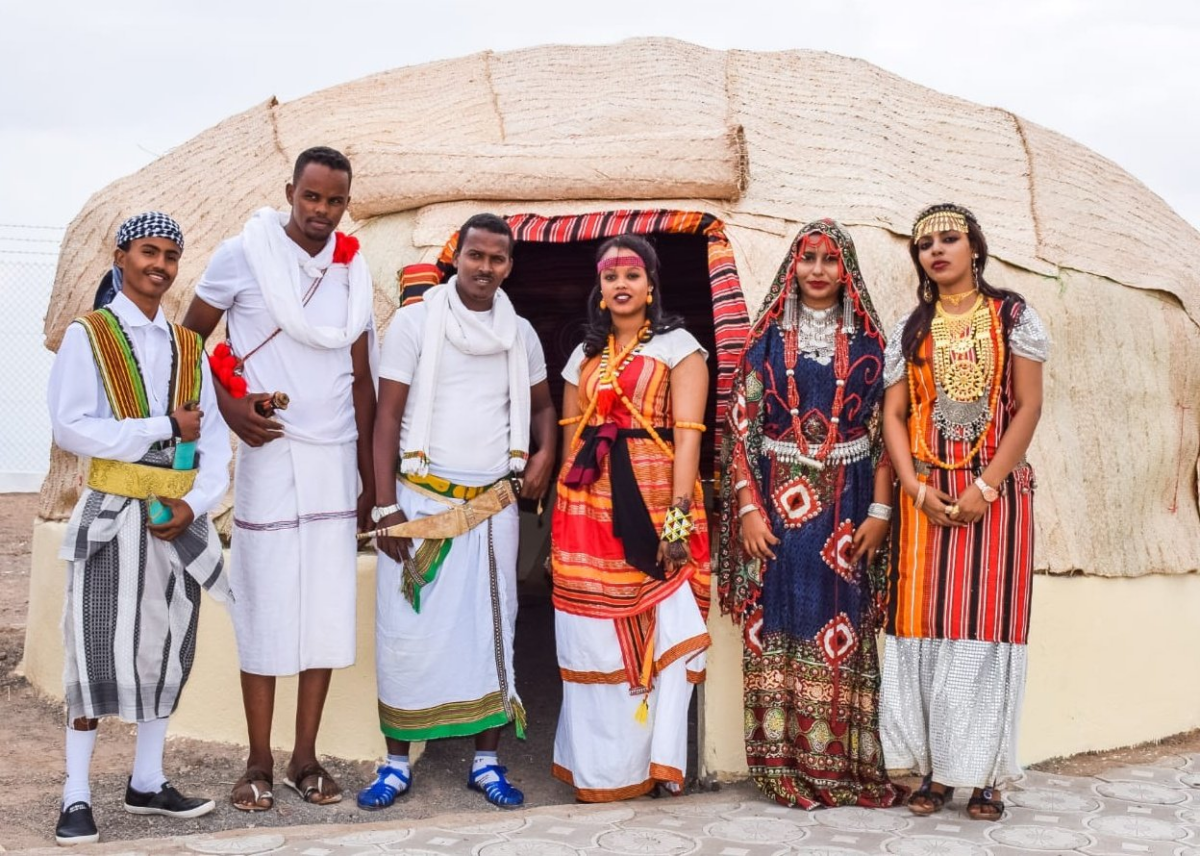
Culture and Traditions
Djibouti’s culture and traditions reflect its ethnically diverse population, predominantly influenced by the Afar and Somali tribes. Its cultural tapestry is further colored by Arabian, Ethiopian, and French influences, providing a rich, multicultural milieu that is distinctly Djiboutian. Music and dance play an integral role in Djiboutians’ social and cultural life, with traditional music often accompanied by dance forms such as ‘Dhaanto,’ a rhythmic dance and music genre.
Djibouti is also known for its oral traditions, with poetry and storytelling being common forms of entertainment and a means of preserving history and social values. The Djiboutian people revere their elders, who are seen as the carriers of wisdom and the transmitters of cultural heritage. This respect for elders is a cornerstone of Djiboutian society, deeply entrenched in their cultural ethos.
One of Djibouti’s most significant cultural events is the ‘Grand Marriage,’ a vibrant testament to the nation’s rich cultural heritage and a traditional Afar wedding that is a spectacle of feasting, dancing, and celebration that can last several days. It is a vibrant testament to the nation’s rich cultural heritage and enduring traditions. Read Also: 8 African Countries at the Forefront of Climate Awareness
Food and Cuisine
Djibouti’s cuisine is an array of flavors, reflecting its diverse heritage. The staple foods include ‘Injera‘ (a type of sourdough flatbread), ‘Lahooh‘ (a fluffy pancake-like bread), ‘Skudahkharis‘ (rice, lamb, and spices), and ‘Fah-fah,’ (a spicy stew often made with chicken or goat). The culinary scene is heavily influenced by the Somali and Yemeni kitchens, with dishes like ‘Sambusa,’ a triangular savory pastry filled with meat or lentils, and ‘Moukhbaza,’ a banana-based sauce often served with flatbread, being popular.
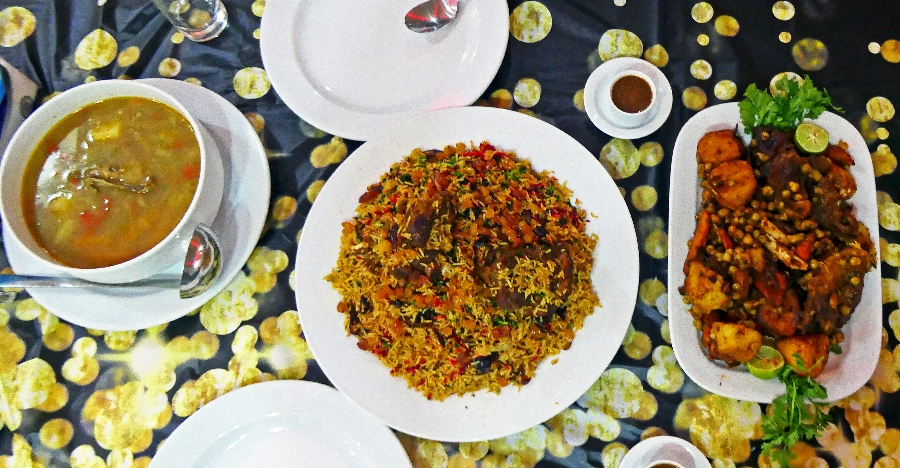
The coastal location of Djibouti also means that seafood is a significant part of the diet. Fresh fish, lobster, and other seafood are regularly featured in meals, showcasing the nation’s rich marine resources. The French colonial influence is evident in the use of herbs and spices and the tradition of serving baguettes with meals.
Tea and coffee also play a crucial role in Djiboutian cuisine. The coffee ceremony, a nod to Djibouti’s Arabian influences, is a social tradition where coffee beans are roasted, ground, and served with frankincense. ‘Shahi,’ a spiced tea with milk and cardamom, is another popular beverage, often consumed throughout the day.
A Haven for Adventurers
Djibouti is a true haven for adventurers, offering an array of natural and cultural attractions that captivate and inspire. The country boasts a unique combination of diverse landscapes, ranging from the sun-soaked white sandy beaches and turquoise waters of the Gulf of Tadjoura to the otherworldly landscapes of Lake Assal, the lowest point in Africa.
Nature lovers can hike through the Day Forest National Park, Djibouti’s only national park, home to various natural species, some of which are endemic to the region. The intriguing geological features of the Ardoukoba Volcano and the Grand Bara Desert also beckon the more intrepid explorers.
Cultural tourism is equally rich, with opportunities to experience the Afar and Somali cultures firsthand, visit traditional markets, and engage with locals known for their warm hospitality. The vibrant capital city, Djibouti City, offers a mix of modernity and tradition, with its colonial-era architecture, bustling markets, and world-class restaurants serving Djibouti’s culinary delights.
Underwater enthusiasts are not left out either. Djibouti’s location on the Red Sea gives it one of the most thriving marine ecosystems globally, making it a paradise for diving and snorkeling. From October to February, Whale sharks, the largest fish in the world, migrate through Djiboutian waters, offering a unique opportunity for snorkelers and divers.
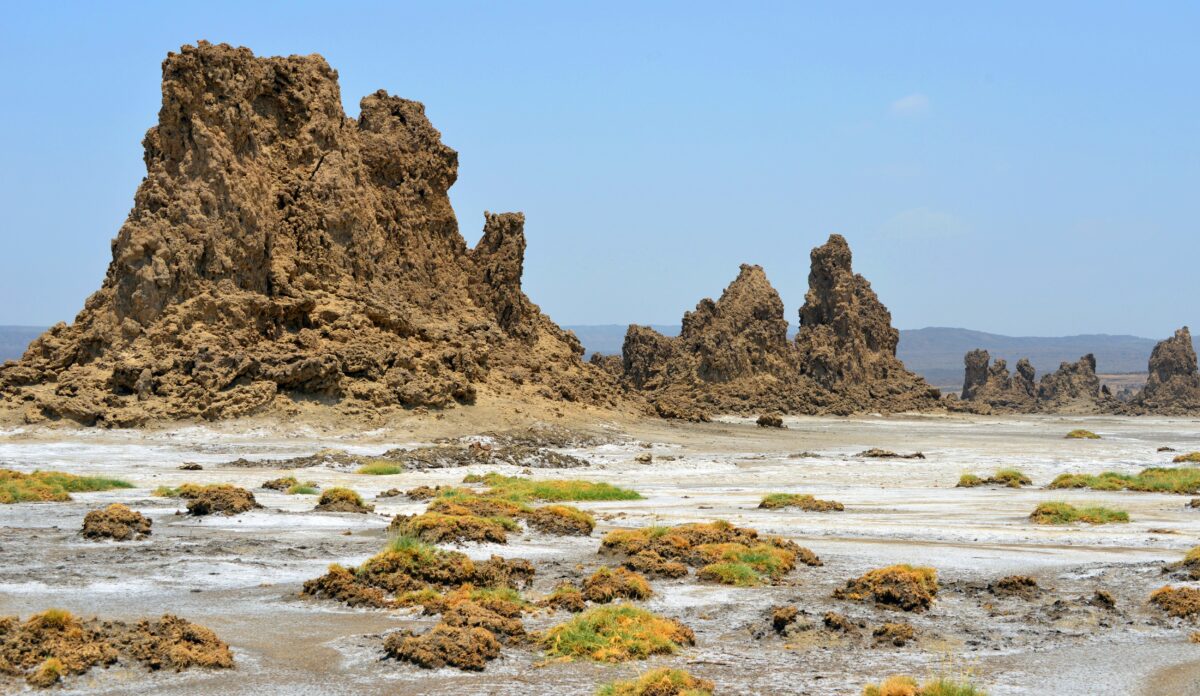
The Pulse of the Economy
Djibouti’s economy is mainly service-based, supported by its strategic location as a transit point in the Red Sea. Positioned between Africa, the Middle East, and Asia, Djibouti has become a vital trade and logistics hub, attracting global attention. The Port of Djibouti, one of the busiest shipping routes worldwide, plays a crucial role in the country’s economy. It is a gateway to international trade, particularly for Ethiopia, its landlocked neighbor.
Moreover, the country has invested heavily in infrastructure development to enhance its logistics capacities, including railway connections, airports, and free-trade zones, to propel economic growth. Djibouti also hosts military bases for several nations, generating rental incomes and providing locals with employment opportunities.
Nevertheless, the country faces economic challenges, such as high unemployment and reliance on foreign aid. Efforts are ongoing to diversify the economy and reduce dependence on the port and transit services. Sectors like tourism and renewable energy hold promise, with the potential to stimulate growth and create job opportunities.

